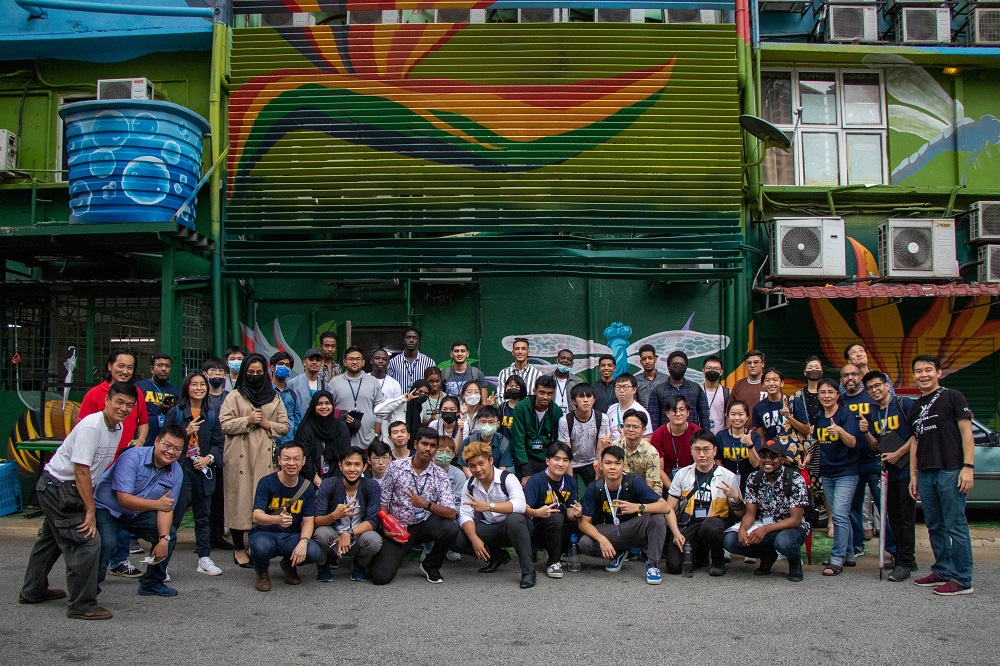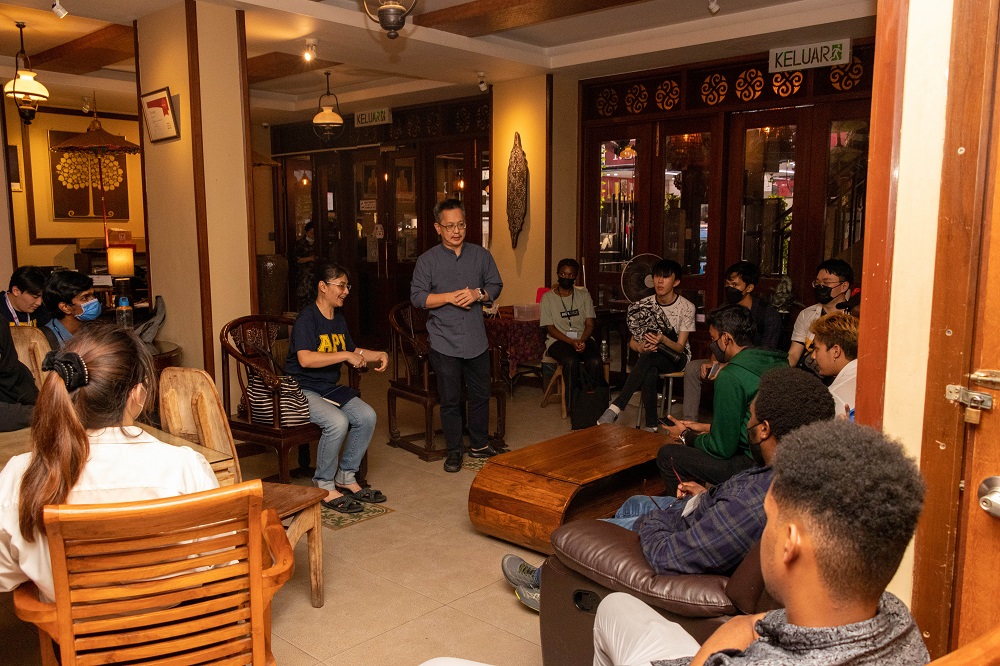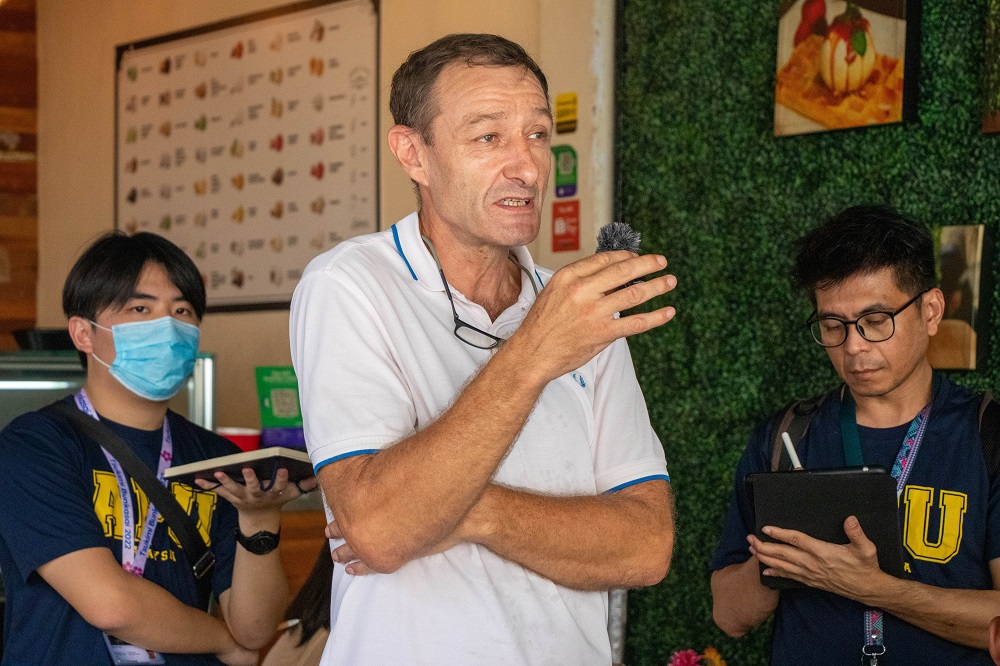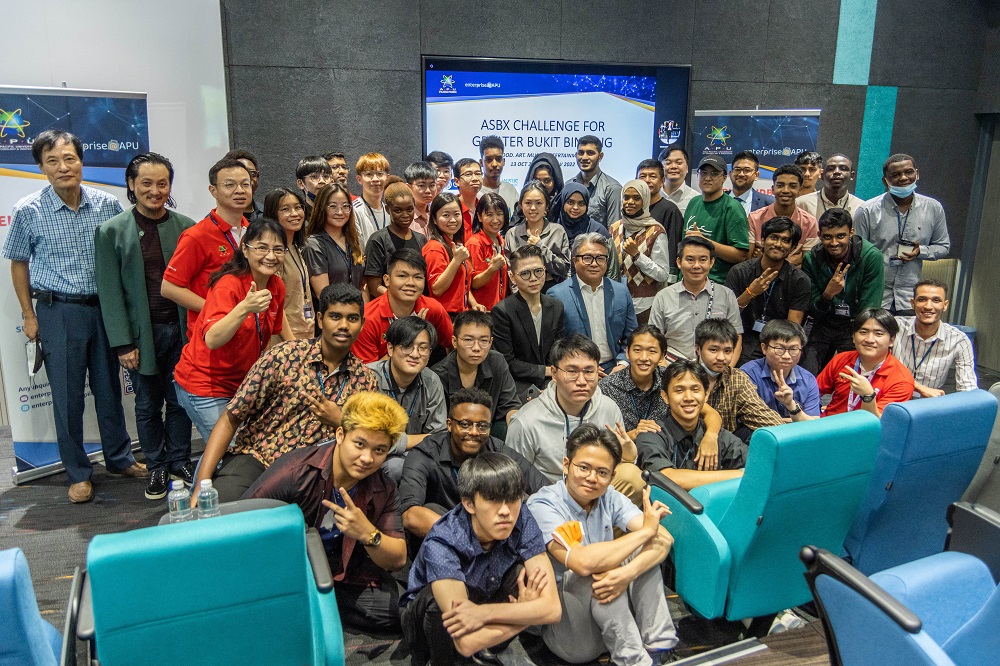Bukit Bintang, eyeing the vision of developing it into a “Greater Bukit Bintang”, is one of the top commercial and entertainment districts in Kuala Lumpur and is a hive of activity bustling with malls, restaurants, bars, and hotels. Thriving and growing as they are, these businesses also face problems and challenges that require solutions towards making the golden triangle and beyond one of the most liveable cities by 2057.

Recently, the entrepreneurs-in-the-making of Enterprise @ APU had been working with the KL Society and the Network of Bukit Bintang Communities (NBBC) to solve problems.
The KL Society is a non-profit organisation dedicated to nurturing a generation of global-minded Malaysian leaders while NBBC is a non-profit organization that boasts to be the definitive guide to happenings and activities around the Bukit Bintang area.
Working towards a common goal, the parties co-organised a “Business Challenge”, to generate concrete solutions.

Focusing on four verticals: Food, Art, Music and Entertainment, the challenge was conducted in a mixed mode of online and face-to-face interactions whereby participants went down to the field and visited the Bukit Bintang area, interacting and engaging with the business community on the ground.
The business challenge was sponsored by the Global Artificial Intelligence Network (GAIN) and Anistic Network. It highlights how blockchain adoption for smart cities can be a new concept that integrates blockchain with the Internet of Things (IoT) – the technology powering smart cities.
The blockchain ledger could be used for commerce, supply logistics, public administration, voting systems, public transport, energy, waste disposal, and more.
“We saw participation from 37 APU students. They were mainly engineering students who take the module called Fundamentals of Entrepreneurship (FEP), which requires them to undertake a business challenge as the team assignment,” explained Dr. Beh Ching Yew, Head of Entrepreneurship & Innovation, APU.
The challenge saw students take a tour around the Bukit Bintang commercial hub, having dialogues and discussions with the business operators. This process was mentored and facilitated by their lecturer-advisors of Research, Innovation & Enterprise of APU.

“Each student team was assigned one academic advisor, who would guide ideation development. At the end of the business challenge, students pitched their ideas on innovative solutions to solve the problem,” added Dr Beh.
To access learning outcomes, a panel of judges comprising APU’s industry partners graded the teams, based on criteria such as problem identification and analysis, the creativity of the solution, feasibility and benefits of the solution, quality of the idea pitching, and teamwork.
Ultimately, the proposed solutions by the students could be further implemented through APU industry partners, demonstrating the benefits of industry-academia co-creation.
At APU, entrepreneurship training incorporates solving business challenges into the curriculum as a way forward to shape future talents and leaders. Through real-life learning, students will benefit tremendously through observations to understand problems.

Testifying to the fruitful learning outcome of entrepreneurship, Professor Dr. Angelina Yee, Director of Research & Enterprise at APU added, “I am glad to see APU students from various disciplines getting to experience this ideation process by utilising advanced technology. Entrepreneurial training is not limited to business undergraduates but encompasses the methodology of different domains. Therefore, I always advise my students to have an open mind along their learning journey and hence transformed into future-focused innovators for the world.”
News & Happening
Download e-Brochures
Intake Calendar
Want to know more ?
Let’s Connect